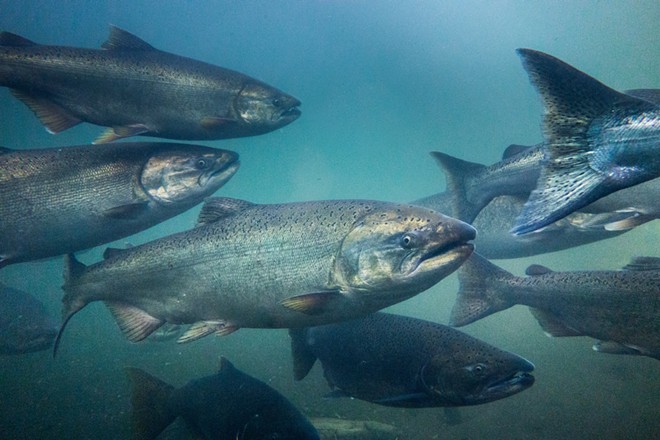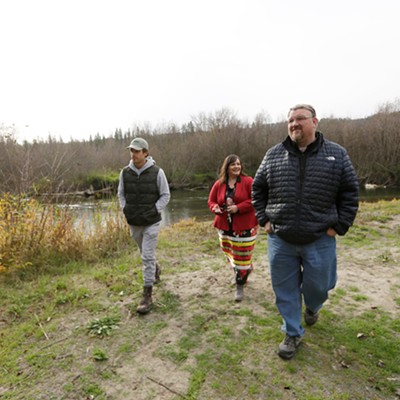As a national organization, Trout Unlimited's 400 chapters work to protect and recover the rivers and streams that cold-water species such as trout and salmon rely on. On April 26, Trout Unlimited President and CEO Chris Wood will join regional members at Gonzaga University, where he'll speak about one of the paramount restoration issues in our region: the Snake River.
Specifically, Wood will talk about why scientists say removing the four lower Snake River dams is essential if there's any chance of saving the wild salmon runs in that watershed, and why that doesn't necessarily have to mean the end of irrigation and crop transportation for farmers along the river.
"The Snake River is unique in the Pacific Northwest because so much of its habitat is either in roadless areas or in wilderness areas," Wood tells the Inlander. "The problem is that these dams have a negative cumulative effect on salmon, both on the upstream migration but especially on the downstream migration."
With the four dams significantly slowing the river and creating warmer reservoirs, juvenile salmon that used to be flushed out to sea by spring runoff are now spending as much as 10 times longer on their journey, and exerting more energy as they actively have to swim to the Pacific Ocean, Wood explains. The reservoirs also house nonnative predatory fish like walleye.
"We can run irrigation pipes further to the river. We can find alternative means of transportation for the grain that depends on the barges. We can do anything to help meet the socio-economic needs of the people that depend on the dams," Wood says. "But the one thing the fish need is a healthy river."
While environmental groups have been fighting for the fish in court for years, forcing the government to take steps like transporting fish by truck or increasing spill over the dams, things remain dire for the wild fish, Wood says.
"We keep winning in the courts, but we're losing in the rivers," Wood says. "We estimate we've probably got four to five generations of salmon left, and we're talking generations in salmon terms. That's about 20 to 25 years before they become functionally extinct in the wild."
Wood expects to talk about the possible solutions for dam removal at the state and federal levels, and how to talk about the issue when some people like to shift the baseline in the debate. His free speech will take place at 7 pm, April 26, at the Globe Room at Cataldo Hall on Gonzaga's campus. Registration is required and can be found at SpokaneFallsTU.org/events. ♦



























